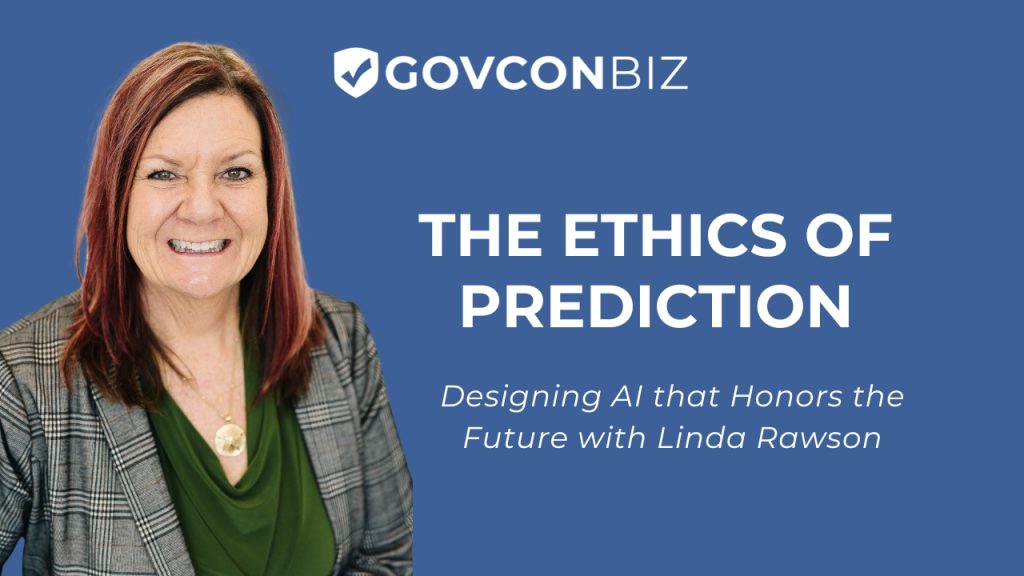In the age of artificial intelligence, prediction has become a prized commodity. From hiring algorithms to risk assessments, predictive models shape decisions that affect lives, livelihoods, and legacies. But beneath the surface of technical sophistication lies a deeper truth: prediction is not neutral—it’s power.
“Prediction is not neutral. It’s a form of influence disguised as foresight.” — Linda Rawson, GovConBiz Podcast
- 🧠 The Illusion of Objectivity
Many AI systems are built on the premise that data-driven predictions are inherently objective. But data reflects history—and history is messy. It’s shaped by bias, exclusion, and systemic inequality. When we feed that history into algorithms, we risk perpetuating the very patterns we hope to transcend.
As AI ethicist Ruha Benjamin writes in Race After Technology,
“The automation of inequality is not accidental—it’s embedded in the design.”
Predictive systems don’t just reflect the world as it is; they reinforce it. They decide who gets hired, who gets flagged, who gets access, and who gets denied. And often, those decisions are made without transparency or recourse.
- 🔍 The Soulprint Framework: A New Lens for Prediction
To navigate this terrain, I developed the Soulprint Framework—a metaphysical and ethical lens for evaluating AI systems. It’s not just about compliance; it’s about conscience.
Here’s how Soulprint helps us interrogate prediction:
- The Seed: What was the system built to do? Was it designed to empower or control?
- The Guardian: What boundaries protect users from harm? Are there checks on predictive overreach?
- The Mirror: How does the system reflect human complexity? Does it reduce people to data points?
- The Phoenix: Is the system evolving with integrity—or just optimizing for efficiency?
- The Scribe: What does it feel like to be predicted? Whose story is being told, and whose is being erased?
These elements invite us to move beyond technical audits and into soulful inquiry.
- ⚖️ Prediction as a Moral Act
Every prediction carries a moral weight. When an algorithm predicts someone’s likelihood of success, failure, or risk, it’s not just forecasting—it’s shaping perception. And perception influences policy, opportunity, and self-worth.
As AI researcher Timnit Gebru has warned,
“We need to stop pretending that data is neutral and start asking who benefits from these predictions.”
In government contracting, where predictive analytics are increasingly used to assess vendors, allocate resources, and flag compliance risks, the stakes are especially high. If we don’t interrogate the ethics of prediction, we risk building systems that entrench inequity under the guise of innovation.
- 🌱 Designing AI with Soul
So what’s the alternative? It starts with intention. We must design AI systems that honor human dignity, embrace complexity, and evolve with integrity. That means:
- Including diverse voices in design and testing
- Auditing for bias and unintended consequences
- Creating feedback loops that allow users to challenge predictions
- Embedding metaphysical reflection into technical development
Because prediction isn’t just about what might happen—it’s about what we choose to make happen.
“The future isn’t something we forecast. It’s something we co-create.” — Linda Rawson



